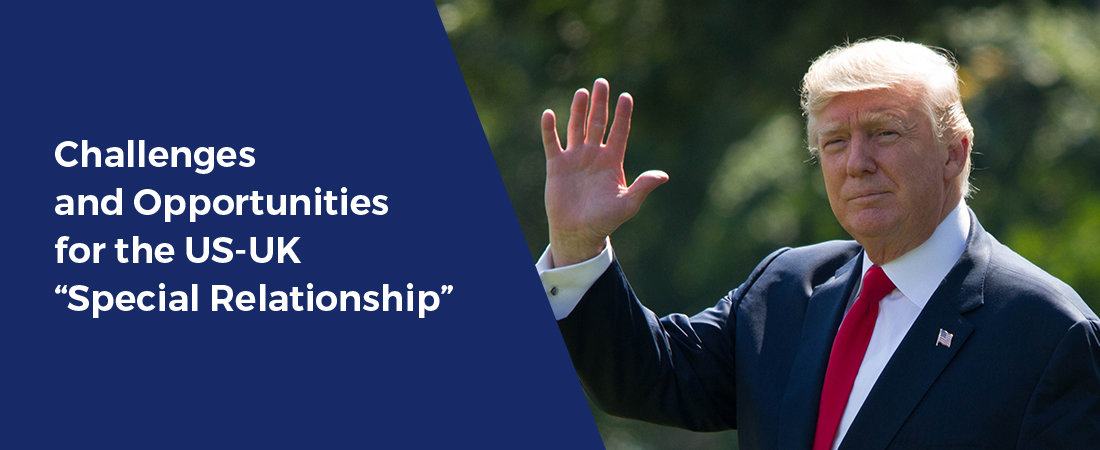On 5 March 1946, UK Prime Minister Winston Churchill told an audience at Westminster College that “neither the sure prevention of war, nor the continuous rise of world organization”, could be gained without a “special relationship” between Britain and the United States. Since then, the term “special relationship” has come to represent US-UK ties and encompass the close political, diplomatic, cultural, economic, military and historical relations between both nations.
As Trump arrives in the UK this week, we sought to identify the key challenges and opportunities for the future of the US-UK “special relationship”.
Trump, May and the Future of the Special Relationship
The UK’s decision to leave the EU, coupled with the elections of US President Donald Trump and UK Prime Minister Theresa May, has created a new chapter in the special relationship – one that finds relations just as critical as ever, but at times more strained.
The Brexit vote and the election of Trump took place within a few months of each other, and will likely be linked in history – both described as shifts towards populism that appealed to similar constituencies.
May was the first world leader to meet Trump at the White House, arriving in Washington in January 2017. During the meeting, Trump pledged to “renew our deep bond with Britain” and promised America’s “lasting support”.
Trump was subsequently promised to be invited to the UK for a full state visit, which never transpired. He additionally canceled a working visit to the UK this past January to open the new US Embassy in London, which media attributed to “fear of mass protests”.
Although no official reason for the cancelation was given, Trump took to Twitter to state: “[The] reason I canceled my trip to London is that I am not a big fan of the Obama Administration having sold perhaps the best located and finest embassy in London for ‘peanuts’, only to build a new one in an off location for 1.2 billion dollars. Bad deal”.
The G7 meeting that convened heads of state in June 2018 was, according to May, “difficult” due to Trump clashing repeatedly with other world leaders. Nonetheless, May stated that the UK intended to fully honor its commitment to the joint statement signed at the summit, although Trump disowned the agreement hours after leaving the multilateral meetings.
Despite increasingly strained ties, Trump will make a working visit to the UK on July 12, immediately following a NATO summit meeting in Brussels that will include bilateral talks with May. Trump will most likely not get the honors of a traditional state visit when he arrives, but is expected to meet with May as well as Queen Elizabeth II. Trump will be the 12th US president to meet the monarch.
There are clear challenges and opportunities in the strategic relationship that will likely be addressed during Trump’s visit. Both Trump and May are plagued with unpopularity at home and abroad, and the two leaders have disagreed on a number of foreign policy issues. This being said, both leaders at least publicly believe that Brexit provides the opportunity to strengthen economic ties through a post-Brexit trade agreement.
To find out more about how Portland can help you and your business, please contact Al Jackson ([email protected]) and Noah Black ([email protected]).






